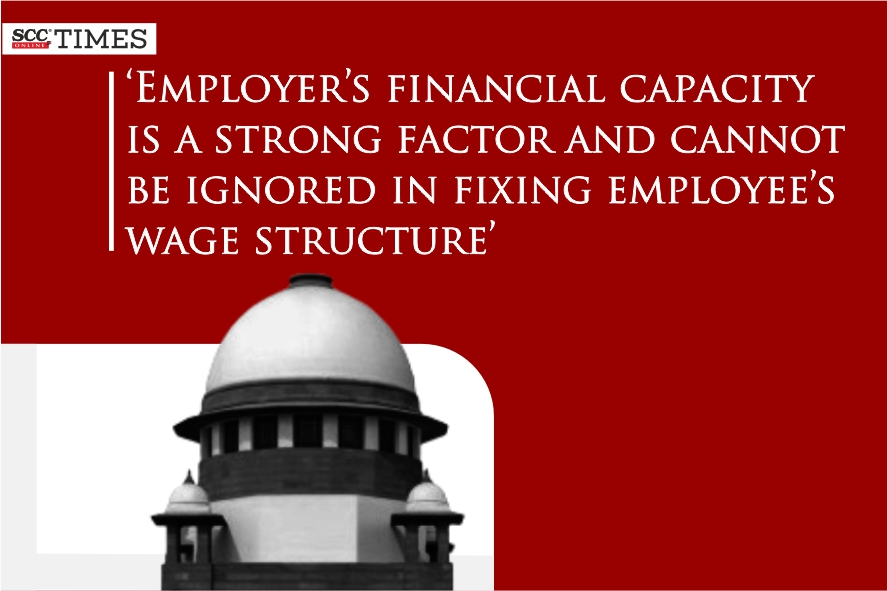Supreme Court: In a batch of civil appeals by the VVF India Limited and the union of employees against two decisions of the Bombay High Court, directing revision of wages pertaining to the workmen of VVF India Limited (‘the employer’) and dismissing the employees union’s review petition against the said decision, the Division Bench comprising of Aniruddha Bose* and Sanjay Kumar, JJ., while striking a balance between the financial capacity of an employer and the fixation of wage structures for employees, said that the financial capacity of the employer is a strong factor in determining the comparability of units applying the industry-cum-region test.
The matter at hand emerged from charter of demands raised by the union in respect of 146 workmen, out of which 80 were engaged at the employer’s establishment at Sewree and 66 of them employed at Sion, both being situated within Mumbai. The demands by the union were in respect of revision in the pay scale/wages/salaries along with certain allowances such as leave facilities and gratuity. The Tribunal, partially, gave relief to the employees, represented by the union, leading to both the union and the employer challenging the Tribunal’s award before the High Court, in separate writ petitions, which came to be dismissed by the Single Judge in a common decision. Further, the High Court allowed the workmen’s writ petition by setting aside the award of the Tribunal for certain demands as per the charter and upheld the Tribunal’s award regarding other demands.
The union argued that the Tribunal had failed to consider the plea of the workmen for parity with similarly situated units in the vicinity as well as its claim for overtime allowances. The employer questioned the jurisdiction of the Writ Court in entering into fact-finding exercise while testing legality of an award.
Regarding the scope of jurisdiction of the High Court, the Court relied on a trajectory of case laws, wherein, it has been held that the High Court in appropriate cases can go into facts while examining an award of a Tribunal. The Court said that the application of industry-cum-region test is the standard criteria, followed by the industrial adjudicator, while determining the revision of wages and other facilities. The industry-cum-region test implies that the prevailing pay and other allowances should be compared with equally placed or similarly situated industrial units in the same region. However, the Court highlighted that the financial capacity of the employer is a strong factor in determining the comparability of units, applying the industry-cum-region test. Referring to A.K. Bindal v. Union of India, (2003) 5 SCC 163 and Mukand Ltd. v. Mukand Staff & Officers’ Assn., (2004) 10 SCC 460, the Court noted that it was laid down that the financial capacity of an employer is an important factor which could not be ignored in fixing wage structure.
The Court noted that the High Court reappreciated the evidence led before the Tribunal in identifying comparable concerns for applying the industry-cum-region test. Taking into account the fact that the employer seriously contested the use of the units concerned as comparable ones, and highlighted its difficult financial position, the proper course that the High Court could have adopted was to remit the matter to the Industrial Tribunal rather than entering into these factual questions independently in exercise of the writ jurisdiction. Further, the Court noted that the employer’s witness had clearly indicated the financial position of the company, and even then, the various allowances like house rent, shift allowance, travelling, medical, education and leave travel were granted without any evidence. The Court said that the employer’s evidence was not properly analysed.
Therefore, the Court set aside the High Court’s decision delivered on 25-07-2019 as also the Tribunal’s award. The Court directed the Tribunal to re-examine the cases of the respective parties afresh and to conclude the reference within a period of six months.
CASE DETAILS
|
Citation: Appellants : Respondents : |
Advocates who appeared in this case For the Parties:: |
CORAM :








